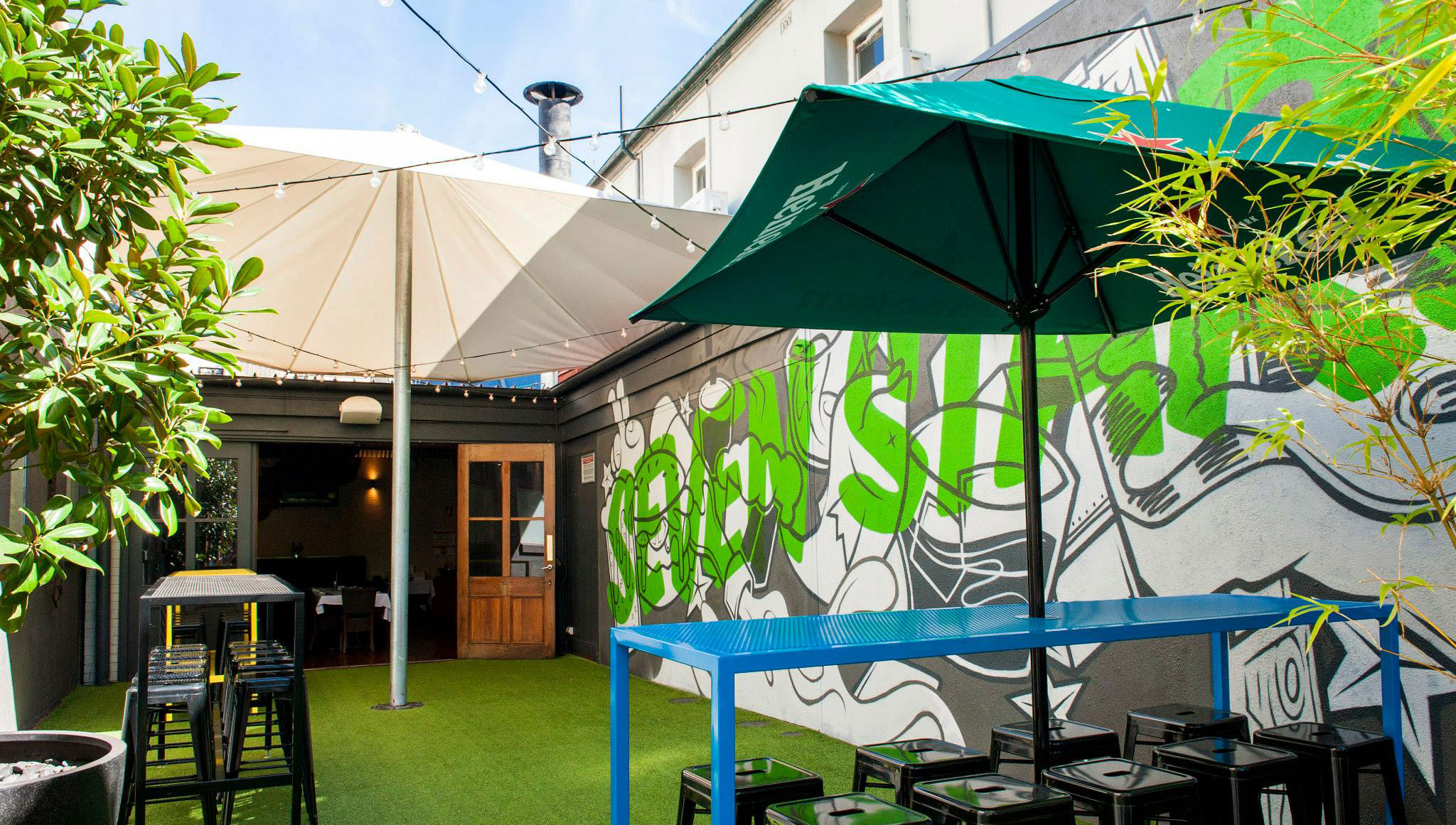Red tape cut on SA’s out-of-date live music rules

Image: The Seven Stars Hotel in Adelaide
Music fans may beable to listen to any genre of music in South Australian pubs and clubs as soon asChristmas after a bill was passed in State Parliament.
Red tape has been cut for some of the state’s most out of datelaws, including bans on certain types of music and the number of band members a venue can host onstage.
The amendment bill has been applied to licensed premises that provide entertainment between 11:00am and midnight.
Greens MP Tammy Franks said the Government’s restrictions meant late ‘80s dance-club influencers Happy Mondays couldn’t perform at the Seven Stars Hotel, because they had too many members.
“At the Seven Stars Hotel there are restrictions on their stage there, they can have four performers but not five, so the Happy Mondays couldn’t play there … it might be contravening the law,” she told the ABC.
“The Belgium Beer Garden was only allowed to have [live] music in the form of harps and didgeridoos, other venues have had restrictions on grunge in particular,” Franks added.
Franks said the Dublin Hotel, which was only allowed to host and play Irish folk music, was prosecuted for having a DJ.
“[It’s] wasting police resources, government time and government money and for what?,” she said. “They went and got their licence changed eventually, the lawyers made a pretty fee out of it, but live music was not the winner that day and neither were the licensees or the punters.”
Melbourne-based live music industry lobby group Save Live Australia’s Music (SLAM) has told TMN that while it’s a step in the right direction, attention should now be turned to local councils.
“My reaction is one shared by all other long term advocates of policy change who were involved in SLAM,” said SLAM representative Ryan Winter. “It’s another step in the right direction, one of many that South Australia has taken recently and the Government should be commended for working alongside industry so closely to address our concerns.
“[…] With this barrier now removed, we turn our attention to local councils who have development say as to whether a building is suitable to host live music.
“Historically, Entertainment Consent and conditions placed upon it at the discretion of the Licensing Commissioner were used as a way to regulate live music if SAPOL (South Australia Police) or the council referred community complaints onto the Office for Liquor and Gambling,” Winter added. “Live music opportunities deserve equal consideration to those of residents and neighbours and so long as the venues are hosting performances responsibly, they shouldn’t be restricted.”
The late-night code of conduct for licensed premises was reviewed back in July to cut rep tape surrounding live music. Changes to the Liquor Licensing Act 1997 made it possible for venues to play live music before midnight without having to submit an application.
Noise restrictions continue to exist under the same Liquor Licensing Act.
Winter believes the roles of councils are now crucial to help license holders, who might now seek to have their development approval reassessed to incorporate live music.
“It’s important, of course, that live music’s contribution to business trade is positive within the local community, so the process involved in making sure that a building is suitably prepared for live music and that noise attenuation issues are addressed will be our next challenge,” he told TMN.

































